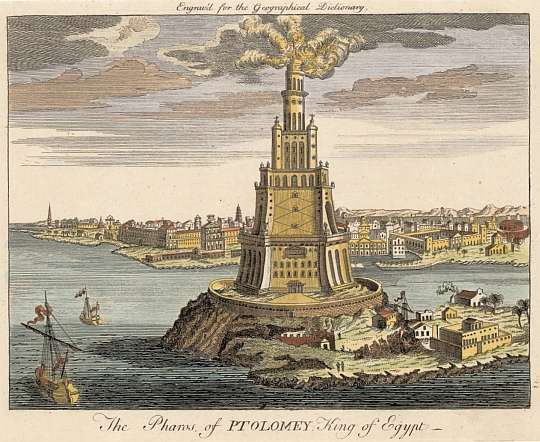Eventlist
Εκδήλωση

- Τίτλος:
- Open Lecture: Alexandria - lost capital of the Ptolemies
- Πότε:
- 01.05.2014 19.00 h
- Που:
- The Ithacan Philanthropic Society - Melbourne
- Κατηγορία:
- Εκπαίδευση
Περιγραφή
Presenter: Dr Gillian Bowen
Entry: Free
Summary
The city of Alexandria was founded by Alexander during his conquest of Egypt in 332/31 BCE. The new city was first occupied in 320 by Ptolemy son of Lagus, the then governor of Egypt. It was this Ptolemy and his successor who set out to make the city the cultural capital of the Mediterranean world. To this end, they built magnificent monuments and invited scholars from all over the Greek diaspora to settle in the city and conduct research.
Modern development has covered the ancient city and in the late 19th century archaeologists decided that the ancient remains were irretrievably lost. Maps drawn up during the Arab and Ottoman periods, together with descriptions of the extant ruins by the savants accompanying Napoleon’s expedition, however, enabled the grid plan of the early city to be reconstructed.
The reconstruction was undertaken by Mahmoud Bey using the above sources, descriptions of the city by ancient sources such as Strabo, and select test excavations. Bey’s plan of the city is still used by researchers today. Modern technology, such as geophysical soundings and submarine excavation, has expanded our knowledge of Ptolemaic Alexandria.
The first part of the lecture gives a brief overview of the city as known from the ancient sources and then explores the methodology used by Bey for producing his plan.
The second part focuses on the modern excavations, particularly the underwater archaeology carried out in the harbour by Jean-Yves Empereur of the Centre d’Études Alexandrines, and Franck Goddio, of the Oxford Centre for Maritime Archaeology.
The areas considered are the Pharos lighthouse, one of the Seven Wonders of the Ancient World, and the palace area. We conclude with an overview of the problems entailed in rescue excavation in the fast-growing city; the test case is the Gabbari necropolis, which was discovered by contractors building a modern road.
Biography
Dr Gillian Bowen is a lecturer of Archaeology and Ancient History at the School of Philosophical, Historical & International Studies of Monash University.
Gillian lectures in archaeology and ancient history specialising in Ptolemaic and Roman Egypt, and early Christianity. Each year she undertakes archaeological field work at the site of Ismant el-Kharab, ancient Kellis, in the Dakhleh Oasis, Egypt, where she focuses upon the early Christian monuments. She is also the numismatist for the Dakhleh Oasis Project.
Sponsors
We would like to thank Pandelis Loupis for sponsoring this lecture. Such initiatives assist us in providing these lectures free to the public.
If you would like to participate as a sponsor from as little as $100 please send us an email: Αυτή η διεύθυνση ηλεκτρονικού ταχυδρομείου προστατεύεται από κακόβουλη χρήση. Χρειάζεται να ενεργοποιήσετε την Javascript για να τη δείτε.
Τόπος διεξαγωγής
- Venue:
- The Ithacan Philanthropic Society - Διαδικτυακός τόπος
- Οδός:
- Level 2, 329 Elizabeth Street
- ΤΚ:
- 3000
- Πόλη:
- Melbourne
- Νομός:
- VIC
- Χώρα:
-

In October 1916, the Ithacan migrants of Melbourne established the ITHACAN PHILANTHROPIC SOCIETY "The Ulysses", with an inaugural membership of some 153 members. This was in response to pleas for aid from their loved ones in Ithaca who were suffering deprivation during the First World War.
Over the years, however, the Society has been much more than just a philanthropic institution. It has been a constant in the lives of the early Ithacan migrants replacing the homeland which they had left.
The Society takes an active role in the cultural, social, educational and quality of life interests of the Ithacan Community. The Society, as part of its philanthropic role, also makes many monetary contributions to worthy causes, including those outside the immediate Ithacan community. The Society celebrated its 90th Anniversary in 2006.
EventList powered by schlu.net

